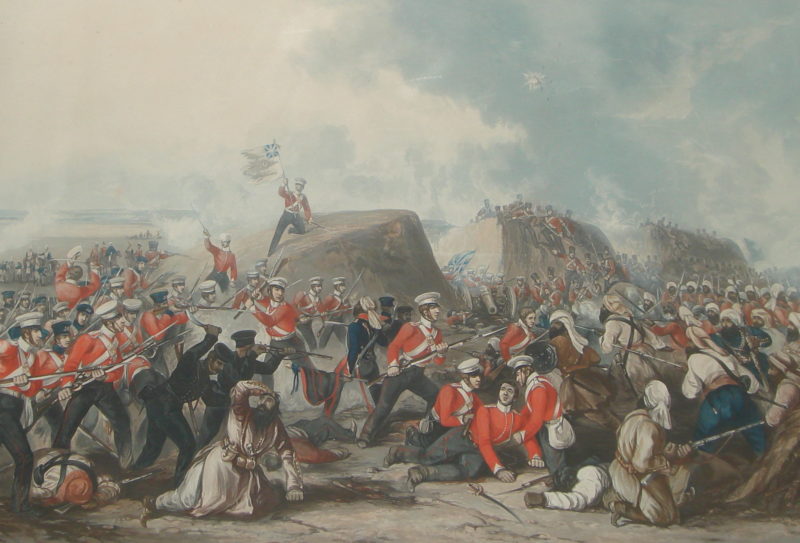Gurkhas and the First Anglo-Sikh War

Gurkhas and the First Anglo-Sikh War
During the late 18th and early 19th centuries, a powerful Sikh Empire developed in the region of the Punjab, under control of the ruler Ranjit Singh. On his death in 1839 conflict and division arose within the empire, weakening it and leading to tensions with British-controlled India to the South. From December 1845 to March 1846 the First Anglo-Sikh War occurred, between the British and Indian forces of the Honourable East India Company and the troops of the Sikh Empire.
An inconclusive battle was fought at Ferozeshah in December 1845, and in January 1846 Sikh forces led by Ranjor Singh, attempted an assault into British-held territory to cut the British lines of communication. In response British, Indian and Gurkha troops under Major General Sir Harry Smith were sent to intercept the Sikhs. After manoeuvring around one another for several days, the two sides met in battle near the Sikh encampment at the village of Aliwal, on the banks of the Sutlej River. Units of Indian and Gurkha troops, including the Nasiri Battalion (the antecedent unit of the 1st Gurkha Rifles) and the Sirmoor Battalion (the antecedent unit of 2nd Gurkha Rifles, and by extension today’s Royal Gurkha Rifles) led by Captain Fisher, are described as charging forward again and again, capturing guns and carrying all before them. The Sirmoor Battalion’s colours were ‘almost shot to pieces, the staff of the King’s colour was cut in half by a cannon ball and was spliced on the field’. The Sikh force was eventually forced to retreat back across the Sutlej, yielding the territory on the left bank of the river to the British.
The next month, the conclusive battle of the campaign was fought at Sobraon. Gurkha reinforcements, again from the Sirmoor and Nasiri Battalions, participated in the battle, which was an extremely hard-fought affair. After a long artillery bombardment both sides met in hand-to-hand combat with the British forces eventually breaking through the Sikh lines. The destruction of a bridge across the river trapped a large number of Sikh soldiers on the British side of the river, leading to their capture or death. The Battle of Sobraon effectively broke the remaining power of the Sikh army and left its capital at Lahore vulnerable. A surrender and peace agreement was reached in early March 1846.

